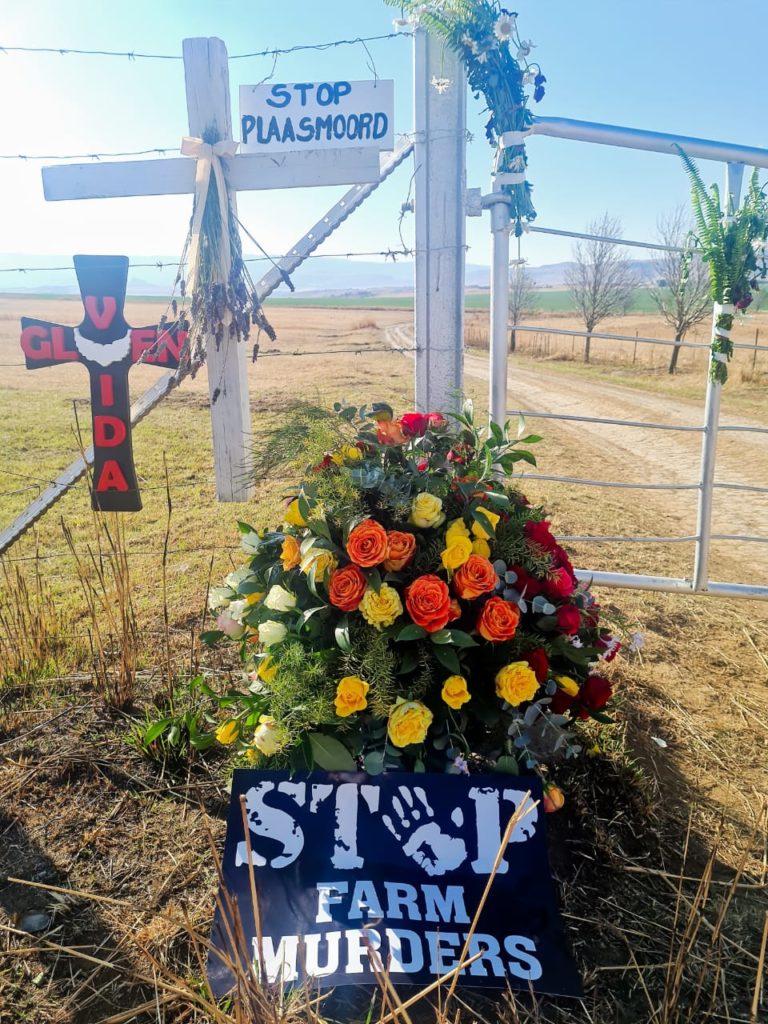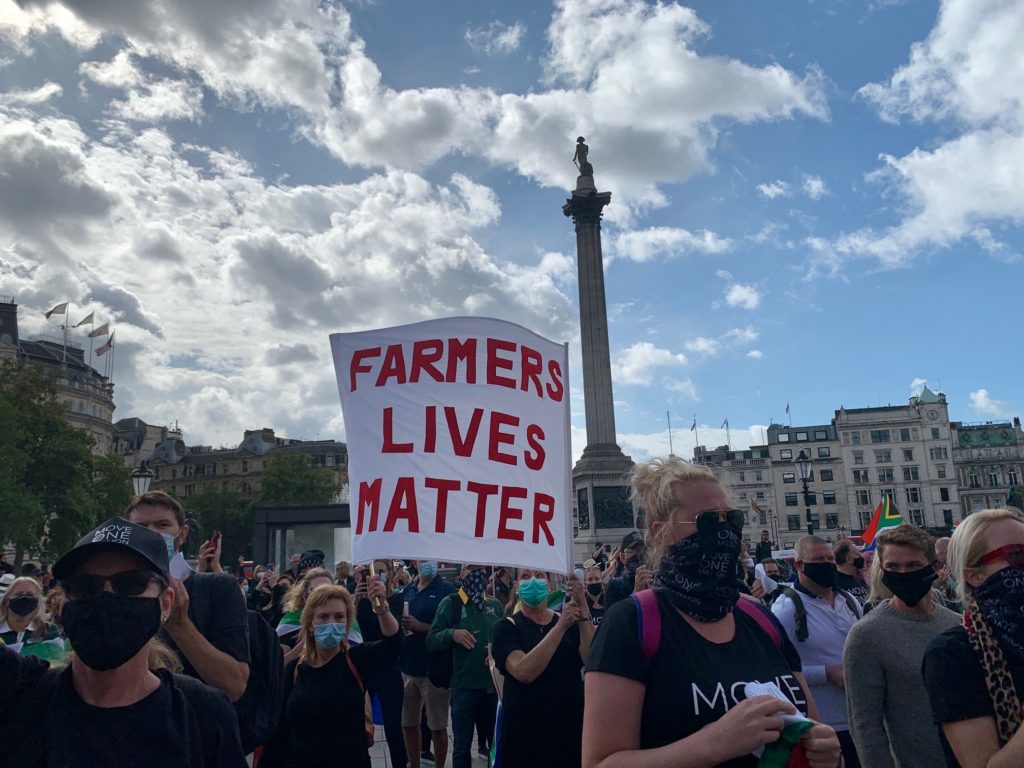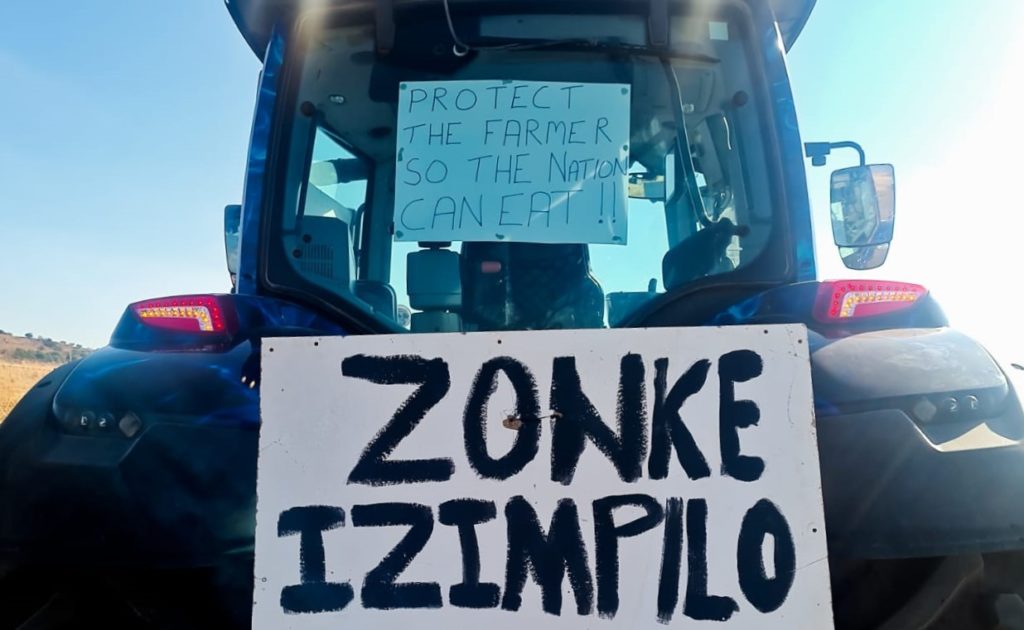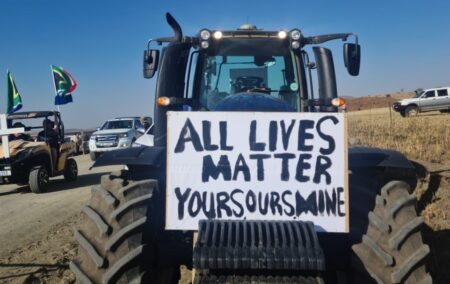At Newcastle in northern KwaZulu-Natal, the first Saturday of spring was a time of mourning and protest rather than celebration yesterday. Just a week ago, Glen and Vida Rafferty were killed on their farm outside the nearby hamlet of Normandien in a pattern thousands refused to accept any longer.
From an open strip of land on the fringe of Newcastle, between 800 and 1 000 tractors, trucks and cars set off bumper-to-bumper in a procession to the Rafferty home on a route flanked by 500 hundred crosses erected on each side of the rural road. Organisers estimated some 3 000 people took part.
The convoy proceeded peacefully – and tearfully at the end, with the laying of flowers at the entrance to the Raffertys’ property.

There, a large banner conveyed the farming community’s plea: ‘President Ramaphosa – How Many More Must Die?’
The grim scale of South Africa’s farm attacks featured prominently in Move One Million protest gatherings across the country yesterday – and even in London’s Trafalgar Square.

In London, the guest speaker, South African-born BBC Africa Editor Martin Plaut, told the crowd of about 600: ‘What happened to the leaders’ belief in justice and freedom? We must have the courage that our history tells us we have. We must have the freedom.’
In Newcastle, locals heard about the protest by word-of-mouth, described as the ‘bush-telegraph’, and showed up from across the district. Those interviewed expressed clear points of interest on the broader political issues.
Bheki Magudulela explained why he had joined the protest. ‘We are supporting each other. There should be no killing anymore. White or black, we are all one.’

Another local, Jason Slambert, said; ‘We’re all here as a team, together we can make a difference.’
An elderly farmer who asked to be identified simply as Vusi said that, in his community, ‘we don’t look at the colour, we look at what people are doing’. Referring to the murder of Glen and Vida Rafferty, he said, pointing to his family: ‘Next time it’s going to be me, or one of us.’
He added: ‘We don’t know the killer, the killer is wearing a mask.’
Participants in the protest like those in endorsed calls for political leaders to take farm attacks more seriously, both in word and deed, and emphasised the solidarity of the community across creed, colour and class.
According to the Transvaal Agricultural Union, there were 586 farm murders between 2010 and 2019.
In the Rafferty case, some expressed uncertainty about the motive. Farmer Karel Swanepoel said: ‘I wasn’t there myself, but from what neighbours say nothing was stolen, so theft does not appear to be the motivation.’
As in other protests yesterday, those who joined the procession to Normandien called for a general reduction of crime, corruption and maladministration.

